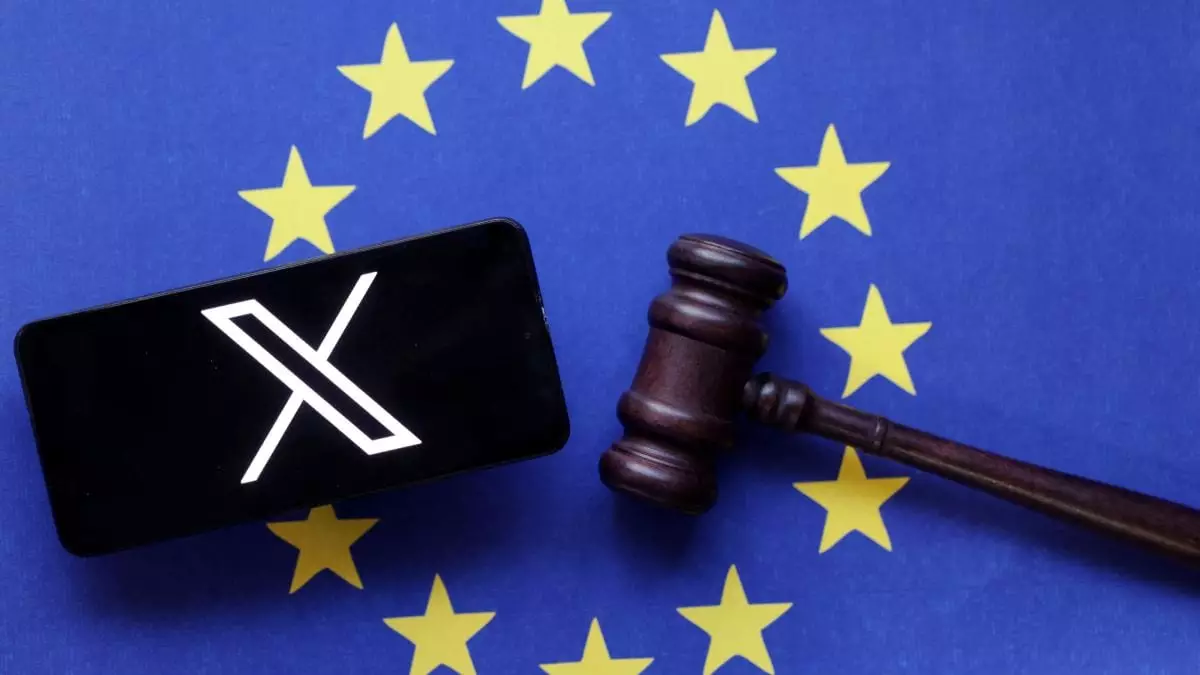The European Union (EU) is known for its stringent regulatory frameworks, particularly when it comes to the digital economy. The ongoing investigation into Elon Musk’s X social network highlights the EU’s commitment to enforcing its Digital Services Act (DSA), which is designed to create a safer online environment by holding major platforms accountable for the content they host. This investigation, which began formally in December 2023, raises serious questions about not only the operational practices of X but also the broader implications for digital governance in Europe.
At the heart of the investigation are allegations that X has failed to adequately address illegal content and disinformation. The EU Commission, led by Executive Vice President Henna Virkkunen, is scrutinizing the platform’s compliance with obligations surrounding transparency and user safety. The DSA mandates that platforms take definitive actions against harmful content, and the EU is determined to assess whether X has taken these responsibilities seriously. The stakes are high; platforms found in violation risk incurring fines of up to six percent of their global annual revenue.
The increase in scrutiny is particularly timely given the recent political climate in Europe, where disinformation campaigns and election interference have become pressing concerns. For instance, the fallout from Romania’s annulled presidential election—attributed to suspected foreign meddling—has intensified the EU’s stance against any perceived negligence by digital platforms. By investigating X, the EU aims to ensure that platforms do not become tools for the manipulation of democratic processes.
In addition to the regulatory implications, the investigation intersects with the political landscape, particularly as Musk, now closely aligned with President-elect Donald Trump, has begun endorsing far-right figures, such as Alice Weidel of the Alternative for Germany party. The EU is examining Musk’s interactions on X, including a recent livestreamed conversation that could suggest preferential treatment of a political candidate—potentially violating DSA regulations. This introduces a layer of complexity to the investigation, as it raises concerns about the intersection of technology, politics, and the responsibilities of social media platforms.
Moreover, the broader implications of this scrutiny come at a time when the EU is particularly sensitive to foreign interference in its political processes. With Musk’s prominent position and influence, the stakes are even higher. Should the EU find that X did indeed provide unfair advantages to certain political candidates, it could set a precedent for how online platforms are regulated during sensitive political periods.
As Musk finds himself in the crosshairs of EU regulators, he has not been shy about pushing back. Having openly feuded with European officials on social media, Musk has signaled an intent to challenge any unfavorable decisions in court. This defiance reflects a growing trend within the tech community, where leaders like Meta’s Mark Zuckerberg are vocal about taking a stand against EU regulations, labeling them as overly punitive—almost akin to tariffs on American businesses.
The outcome of this investigation is poised to have far-reaching consequences, not just for X but for the entire tech landscape in Europe and beyond. With Trump taking office imminently and his administration likely to support Big Tech—pressuring EU regulators to ease their scrutiny—the dynamics could shift dramatically. Lobbying efforts from tech giants could significantly affect how Europe implements its digital policies, leading to an increasingly complex relationship between American platforms and European regulations.
Ultimately, the EU’s investigation into Musk’s X signifies a pivotal moment for digital governance. As regulatory bodies worldwide grapple with the challenges posed by big tech and the rise of disinformation, the outcome of this probe could set vital precedents. It reflects not just the growing demand for accountability from platforms like X but also highlights the delicate balance between regulatory oversight and the innovation that these platforms can foster. The road ahead will be marked by tension and negotiation as regulators, tech leaders, and political influencers navigate the complex digital landscape of the future.


Leave a Reply
You must be logged in to post a comment.